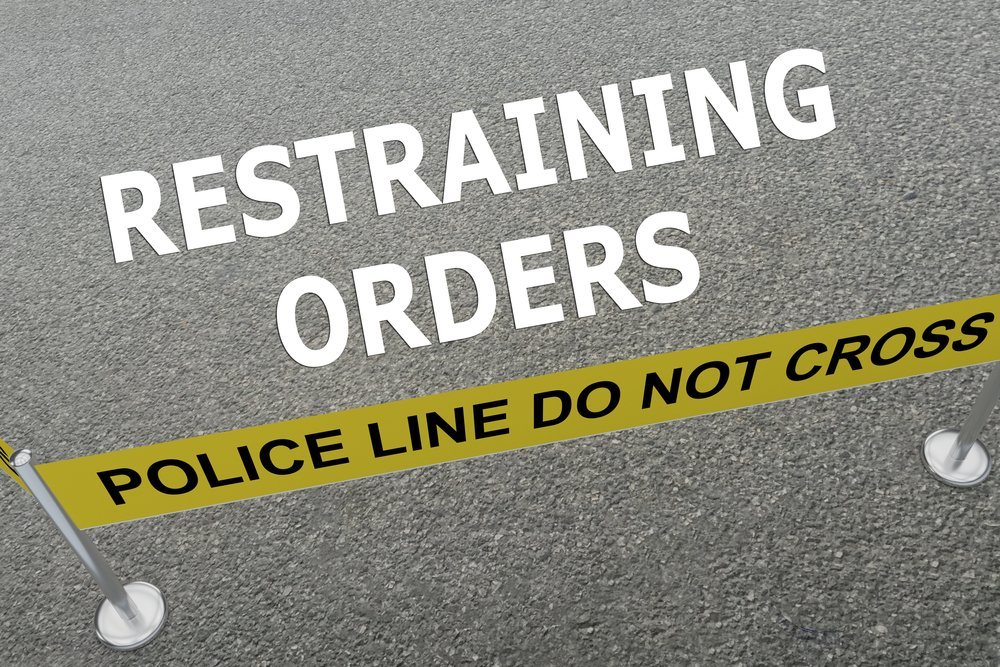
19 Oct Getting a Restraining Order Against Your Ex
When you and your ex split up, the emotions can take over. You might say and do some things that you regret. As a result, you could do something that can have long-lasting implications. In some cases, this means getting a restraining order against your ex. Find out whether or not you should get a restraining order against your ex and what it can mean.
When should you think about getting a restraining order against your ex?
When your ex doesn’t handle a break-up well, things can get ugly. Your partner might get violent and take it out on you. In some cases, he might harass you with threatening calls and texts. However, you don’t have to put up with their behavior. Instead, you may be able to file for a restraining order. Here are some behaviors that can warrant a restraining order:
- Disorderly conduct
- Harassment of the first or second degree
- Aggravated harassment
- Stalking
- Reckless endangerment
- Menacing of the second or third degree
- Assault of the second or third degree
- Attempted assault
- Sexual misconduct
- Criminal mischief
- Forcible touching
- Strangling
While there are other ways of getting a restraining order against your ex, these are common causes of one. You need to talk to a lawyer to find out if your situation qualifies.
What does it mean?
There are a few serious impacts of a restraining order. Before you consider getting a restraining order against your ex, you should understand the impact. The impact can be long-lasting and life-changing.
The first impact of the restraining order is an obvious one. When you file a successful restraining order, your ex cannot come near you or contact you. There are, however, other consequences.
Employment
After the restraining order, your ex could have a hard time finding employment. Some employers check to see if their prospective employees have restraining orders against them. If your ex has a state professional license for work, he could also lose that license. He could end up losing his job.
Housing
If the restraining order is against someone in your home, law enforcement can force him to leave. He may need to go immediately and only get access to his essentials. Depending on the urgency, he may only be allowed to take an overnight bag and his wallet.
Child Custody Cases
In some states, a restraining order could hurt your ex in child custody cases. The state could take away the chance for custody or limit visitation.
Spousal Support
If your ex already pays spousal support or you have yet to come to an agreement, the restraining order could increase the amount of spousal support.
Gun Ownership
In certain states, a restraining order can prohibit your ex from owning a gun. If he has any firearms, the state may require him to give them up.
Reputation
A restraining order shows up on background checks and requests for public records. If you have a restraining order against your ex, his community could see his record.
Criminal Charges
If your ex breaks the restraining order, he could face criminal charges. These charges could follow him around forever.
Why Shouldn’t you get one?
If you want to file for a restraining order, you need to think twice. The only time that you should file is when your ex-partner behaved in a way that warrants a restraining order. If you lie about your reasons for getting a restraining order against your ex, you could be the one who it hurts. Your partner can dispute the order. When your deceit comes to light, you could face criminal charges. Falsely reporting a crime is often a misdemeanor offense. If you get charged with a misdemeanor, the conviction could hurt you in future court cases. During divorce and child custody agreements, your crime could hurt your chances.
Another thing to consider is the escalation of your conflict. If you and your ex still have details of the relationship to sort, getting a restraining order can escalate things. For example, you might need to file for divorce. Instead of coming to an amicable agreement, your ex could use his anger and try to get the best of you in the divorce. In a custody case, your ex could go for custody of your children out of anger. Instead of coming to a reasonable agreement, you could end up with an emotional court battle.
Filing for a Restraining Order
Of course, you should file for a restraining order if you need one. It’s especially important to file for one if you feel any type of threat. However, avoid filing out of spite. If you only do it to get back at your ex, you could hurt yourself in the process.
If you think that you need a restraining order against your ex, you should contact a lawyer. Only a lawyer with experience can tell you whether or not the order is a good idea. If you decide to go through with the order, your lawyer can help you through the process.



Sorry, the comment form is closed at this time.